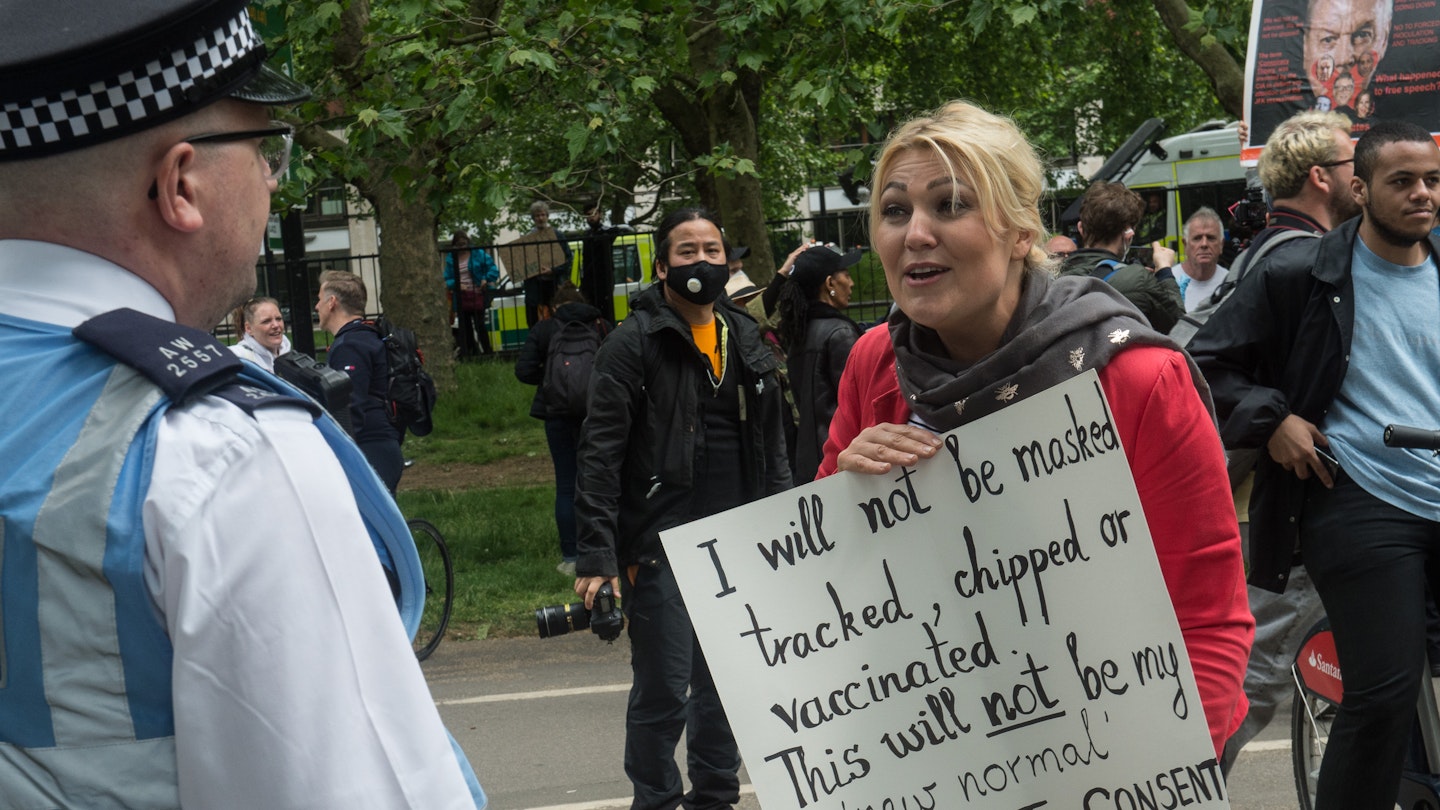Denise Welch is trending this morning on Twitter following the coronavirus briefing. Not because of something hilarious she’s said on Loose Women (oh sweet 2019, how we remember you), but for her epidemiological qualifications (or lack thereof), which have become something of a running joke in some areas of social media. And worryingly, words that are being held up as necessary truth-telling in other areas.
In case you’ve been thankfully spared and wonder WTF I’m talking about, Denise has become one of the celebs erring on the conspiracy-side when it comes to coronavirus. Piers Morgan and others have branded her a ‘covid-denier’ for her social media ‘truth-telling’ - something she denies. She’s just this weekend decided to ‘take a break’ from Twitter, saying: ‘I hope I’ve helped balance the fear the media seems determined to continue. Just look at the data, ask questions and look after your loved ones.’
This morning it wasn’t the media spreading the fear – it was two of the county’s top-scientists.
In a press conference that felt very deja-virus, the country’s Chief Medical Officer, Professor Chris Whitty and the government’s chief scientific adviser painted a very grim picture indeed, using graphs and facts (though covid-deniers have some of those too).
If you’re feeling a bit TLDR, they said that if things continue like they currently are, there could be 50,000 new cases of covid-19 by mid-October, which could mean up to 200 deaths a day the following month. They said people should prepare for significant restrictions for the next six months. And that the mortality rates were ‘significantly greater’ than seasonal flu.
‘We have in a bad sense, literally turned a corner,’ he said.
The press conference felt very much like we’re being prepped for tighter restrictions and warned that yes, what we’re doing does and will affect how many people will die this winter.
It seemed, in those three points (yes more cases WILL mean more death, yes we DO need to act and be restricted and yes, it IS more deadly than flu) to also be a briefing to directly counteract and just STOP PLEASE STOP a lot of the covid-denying that is going on across social media.
So that is why Deniseis trending right now – because people have been joking about why she didn’t take the briefing, or why her scientific knowledge wasn’t incorporated into the press conference.
The problem is, though (and probably why, perhaps, this briefing was so carefully worded to myth-bust) as anyone who’s watched The Social Dilemma on Netflix is terrified to know: fake news spreads six times faster than true news.
And, sadly from our own anecdotal experience, we're all starting to realise that – combined with the confusion the government is also responsible for in their messaging too – some of those messages are cutting through. It’s not just ‘that mad aunt on Facebook’ or ‘that weird guy I should’ve blocked on insta a while ago anyway’ who are buying into the misinformation about coronavirus – it’s getting closer to home.
Rachel says it’s also not necessarily cut along the political lines you’d expect.
‘I’ve got a super cool, lovely spin teacher who I share a lot of the same views with, about politics and Brexit – she’s left-leaning and a remainer like me,’ says Rachel. ‘At the weekend, we were chatting and it turns out she’s a massive anti-masker and will now only shop in places where you don’t have to wear them.
‘It’s really put me off her, instantly. It’s so strange, there are so many divides in this country, but this straight away made me think, “No, I cannot discuss this with you.” I feel like it crosses a line I can’t put up with.’
Josie agrees: ‘All of my close friends have been taking Covid-19 very seriously, but I’ve heard numerous stories of friends of friends who think it’s all a hoax, are going out to illegal raves every weekend or at the very least think it’s not that big of a deal.
‘Then this weekend, I saw an old friend was posting on her business instagram account about how she had Covid-19 and it “wasn’t that bad”, that “the government were pulling the wool over our eyes saying it’s a death sentence”. She’s 23, fit and healthy. Having seen cases rise for the past few weeks, I couldn’t stop myself and I messaged her a rant about how the government have always been clear 70% of people are asymptomatic but that doesn’t change the fact that older and vulnerable people could die, as over 40,000 people in the UK have.
‘She ignored me, and to be honest, I have little faith today’s briefing will get through to people like that. They’re getting their news from conspiracy theorists masked as intellectuals. I think it’s up to us to educate people and share the statistics, because they’re not tuning into government briefings and they don’t trust the government if they did. I don’t necessarily trust the government either, but I trust the science and that’s what we all need to be sharing right now.’
And, bearing in mind that Fake News stat, you might find yourself having to say it six times to even come close to levelling up the playing field.
Speaking to and educating those who are covid-deniers and anti-maskers might feel like an effort you don’t have the bandwidth for right now. And that’s fair enough. But if you do, it could be worth it – because as plenty of us do know, the science shows the actions of just one person can affect many more. And even have deadly consequences.
